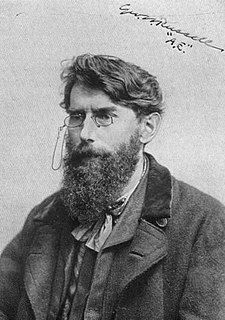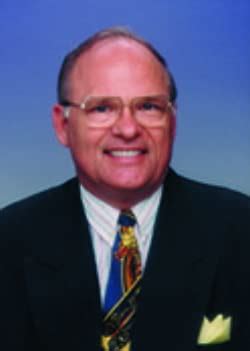Цитата Джорджа Уильяма Рассела
Верно, что оратор может воспроизвести мириады собственных страстей из тех, кто его слушает. Но это не доказывает, что он прав или они не дураки.
Связанные цитаты
Если наш Господь восходит на небо, восходите с Ним. Будь одним из тех ангелов, которые сопровождают Его, или одним из тех, кто принимает Его. Вели врата подняться (ср. Пс. 24:7, 10) или сделаться выше, чтобы они могли принять Его, вознесенного после Его страданий. Ответьте тем, кто сомневается, потому что Он несет с Собой Свое тело и знаки Своих Страстей, которых у Него не было, когда Он нисходил, и которые поэтому спрашивают: «Кто этот Царь Славы?» что Господь силен и могуч, как во всем, что Он время от времени творил и творит, так и ныне в Своей битве и торжестве ради Человечества.
То, что на форуме называется красноречием, в исследовании обычно оказывается риторикой. Оратор поддается вдохновению мимолетного случая и говорит с толпой перед ним, с теми, кто может его слышать; но писатель, чья жизнь более уравновешенная и который хотел бы быть отвлеченным событием и толпой, которые вдохновляют оратора, обращается к разуму и сердцу человечества, ко всем во все времена, кто может понять его.
Мудрый человек не делает ничего, кроме того, что можно сделать открыто и без фальши, и он не делает ничего такого, чем он мог бы вовлечь себя в какой-либо проступок, даже если он может остаться незамеченным. Ибо он виновен в своих глазах раньше, чем в глазах других; и публичность его преступления не приносит ему больше стыда, чем его собственное осознание этого.
Это ставки, которые постоянно существуют, и как эти ставки меняют вас? Как это меняет человека, которым вы являетесь? Если окажется, что речь идет о выживании, то разве это жизнь? Как это делает вас, вы? Как это меняет вашу личность? Эта фотография губернатора, его жены и дочери, он не был тем парнем до того, как все это началось. Люди, умирающие вокруг него, превратили его в это.
Пророк, который время от времени пропускает это в своих пророчествах, может быть невежественным, незрелым или самонадеянным, или он может служить со слишком большим усердием и слишком маленькими мудростью и помазанием. Но это не доказывает, что он лжепророк. Конечно, истинный пророк может быть неточным.
[S] предположим, что разум [] друга человечества был затуманен его собственным горем, гасящим всякое сочувственное участие в судьбах других; у него все еще есть ресурсы, чтобы быть благотворным для тех, кто страдает от беды, но беда других не касается его, потому что он достаточно занят своими собственными; и теперь, когда его уже не побуждает к этому никакая склонность, он вырывается из своей смертельной бесчувственности и совершает действие без всякой склонности, исключительно из долга.
У настоящего лидера есть уверенность, чтобы оставаться в одиночестве, мужество, чтобы принимать трудные решения, и сострадание, чтобы прислушиваться к нуждам других. Он не ставит перед собой задачу быть лидером, но становится им благодаря уравновешенности своих действий и цельности своего намерения.
Пока вы, ребята, не владеете своей собственной душой, вы не владеете моей. До тех пор, пока вам, ребята, можно будет доверять каждый раз и всегда, во все времена и при любых обстоятельствах, искать правду и находить ее, и пусть щепки падают, где они могут, - пока не придет время, я имею право прислушиваться к своей совести, и защитить моего клиента, как я могу. До тех пор, пока я не буду уверен, что вы не причините ему больше вреда, чем пользы от правды. Или пока меня не приведут к тому, кто сможет заставить меня говорить.
Праздность часто прикрывается суетой и спешкой. Тот, кто пренебрегает своими известными обязанностями и реальными занятиями, естественно, старается заполнить свой разум чем-то, что может препятствовать воспоминанию о его собственной глупости, и делает что-либо, кроме того, что он должен делать, с ревностным усердием, чтобы сохранить свое собственное сознание. услуга.
Писатель-аналитик наблюдает за читателем таким, какой он есть; соответственно, он производит свой расчет, настраивает свою машину так, чтобы она производила на него соответствующее воздействие. Синтетический писатель конструирует и создает своего собственного читателя; он воображает его не отдыхающим и мертвым, а живым и приближающимся к нему. Он заставляет то, что он изобрел, постепенно оформляться на глазах у читателя, или соблазняет его сделать изобретение самому. Он не хочет произвести на него особого воздействия, а скорее вступает в торжественные отношения сокровенной симфилософии или симпоэзии.
Кое-где может оказаться рабочий, который по известным, необъяснимым для нас причинам не вступает в профсоюз. Это его право. Это его законное право, независимо от того, насколько морально неправым он может быть. Это его законное право, и никто не может и не осмеливается ставить под сомнение осуществление им этого законного права.




































